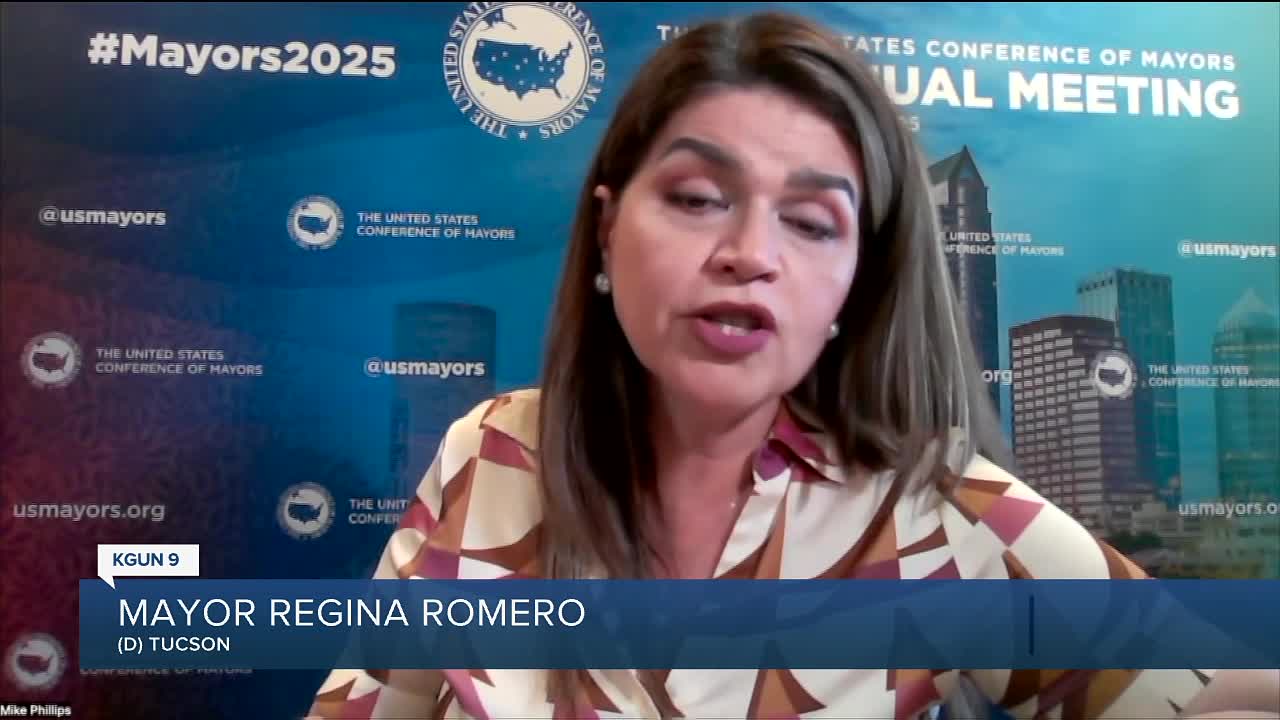TUCSON, Ariz. (KGUN9) — Tucson Mayor Regina Romero is in Tampa, Florida, this week attending the 93rd Annual U.S. Conference of Mayors, where she’s collaborating with peers from across the nation on shared urban challenges, such as immigration enforcement and the fentanyl crisis.
Romero, who serves as chair of the Latino Alliance of Mayors, emphasized the importance of these gatherings for exchanging solutions.
“Tucson is not unique in the issues that we’re going through,” she said. “Affordable housing, unsheltered homelessness, infrastructure investments, climate change — all of these are national issues, and mayors are finding local solutions.”
One hot-button topic on the agenda is immigration and recent federal enforcement tactics.
Romero was blunt in her assessment of what she sees as politically motivated targeting of Democratic-led cities. “President Trump is very specifically attacking Democratic-run cities,” she said. “That sends a chilling effect among Democratic mayors.”
Despite the national climate, Romero reiterated her administration’s stance on protecting all Tucson residents.
“We are going to help protect our residents, whether they are documented or not,” she said. “I have an incredible partnership with our chief of police, Chief Kasmar, who does not want to be involved in any ICE raids.”
Romero acknowledged that her position has drawn criticism, but said she struggles to understand those who support harsh enforcement — especially against migrants who seemingly have broken no serious laws.
“I struggle with people that cheer cruelty,” she said. “People don’t see the humanity in others — especially children and workers — and I think that’s a serious problem.”
She also pointed to economic consequences.
“The City of Tucson is seeing less revenue in sales taxes,” Romero said, noting that fear among Mexican visitors, Tucson’s top international tourist demographic, is having real financial impacts.
Back home, Romero is also tackling the fentanyl epidemic’s toll on the city’s unhoused population.
She said her administration is in talks with Pima County to establish a detox facility and a Sobering Alternative Facility for Emergency Recovery (SAFER Center).
“We’ve declared a fentanyl and opioid use crisis in our community,” she said. “The hardest unsheltered individuals are those refusing services because of fentanyl or opioid misuse. That’s why we’re working with Pima County—they are responsible for public health.”
Romero concluded by stressing the collaborative nature of the conference. “Mayors can’t solve these problems alone,” she said. “We need our county, state, and federal partners to invest in shared solutions.”
The U.S. Conference of Mayors continues through the week.
——
Eddie Celaya is a multimedia journalist at KGUN 9. Born in Tucson and raised in the Phoenix area, Eddie is a life-long Arizonan and graduate of the University of Arizona who loves the desert and mountains and hates the cold. Previously, Eddie worked in print media at the Arizona Daily Star. Share your story ideas with Eddie at edward.celaya@kgun9.com, or by connecting on Facebook or Instagram.





